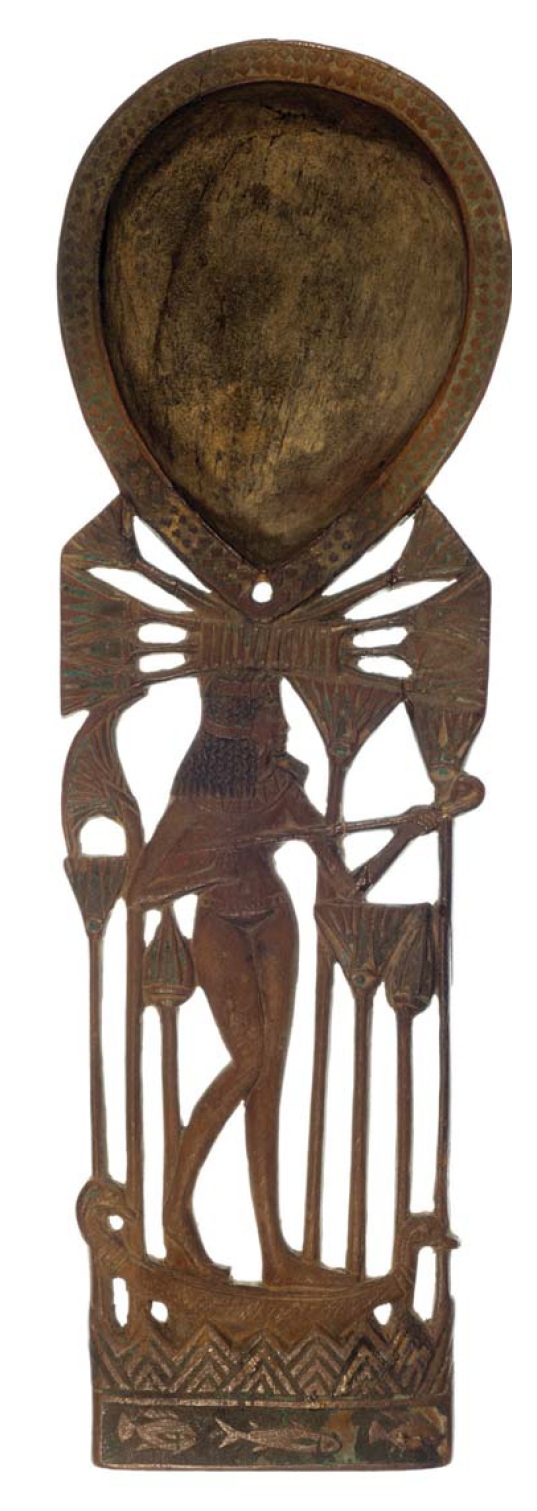Small boat with a gently crescentic hull. The stem rises vertically, ending in an outward facing naturalistic duck head. The stern curves upward more gently, ending in an inward-facing naturalistic duck head. Four vertical bands on the hull at the bow and stern. Gunwale delineated by a thin line.
cosmetic spoon
M5
Late Dynasty 18 (ca. 1350 BC)
Tomb of governor Menena. Sedment, Egypt.
L: 21 cm; W: 6.35 cm; weight: 35.247 g
Cosmetic wooden spoon in the form on an ankh. Hole for a missing cover for the spoon.
UCL Petrie Museum of Egyptian Archaeology inv. LDUCE-UC14365
Capart 1905: 6-7, pl. LXX; Picton 2013: 54-55
Wooden cosmetic spoon in the form of an ankh, with cross pieces formed by tied lotus flowers. The handle takes the form of a nude girl with a lute standing in a boat among tall lotus flowers and buds. Beneath the boat are zigzag lines denoting water and two kinds of fish. The object was found with scarabs of Amenhotep II and Tuthmosis III.
The ship is identical to that of another Egpytian cosmetic spoon (M4), with the exception of the vertical bands missing amidship.
Capart, J. 1905.Recueil de monuments egyptiens: cinquante planches phototypiques avec texte explicatif. Vol. II. Brussels: A. Vromant.
Picton. J. 2013. “A Lute Player on the Nile.” In: M. Carnall and S. MacDonald (eds.) Conversation Pieces: Inspirational Objects in UCL’s historic collections. Oxford: Bloomsbury Publishing.



